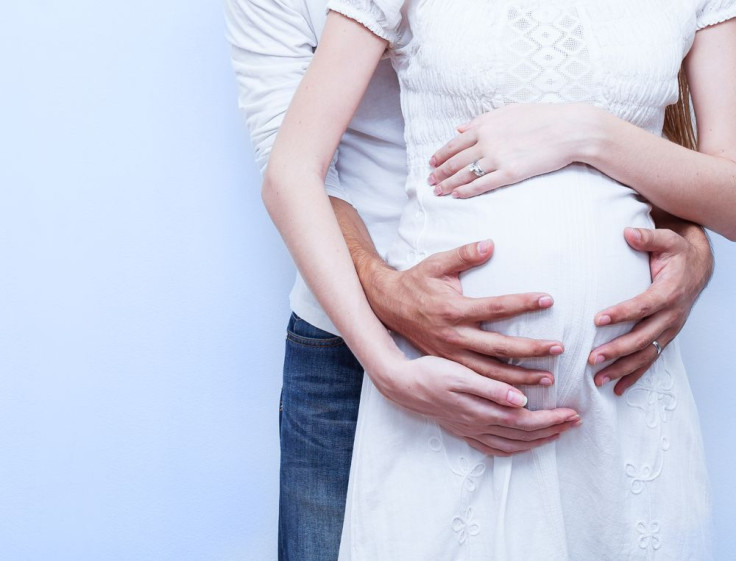Testosterone, Estradiol Levels Drop In New Dads During Partners' Pregnancies; Hormonal Changes Occur Earlier Than Once Thought

It used to be that once a woman became pregnant, her husband’s job was basically done. Besides helping her through the pregnancy, as any proper man would, he remained the same physically, emotionally, and biologically. Now, we know things are a little different. Some research has shown men’s hormone levels change with the birth of a baby, but according to a new study from the University of Michigan, these changes may occur before the baby’s even born.
“Our findings suggest these changes may begin… during the transition to fatherhood,” said study author Dr. Robin Edelstein, from the university’s Department of Psychology, in a press release. The study was published in the American Journal of Human Biology.
Edelstein and her team conducted four tests on the saliva of 29 couples expecting their first babies. The tests took place throughout the pregnancy period, at 12, 20, 28, and 36 weeks. The team was specifically looking at levels of testosterone, cortisol (the stress hormone), estradiol (a form of estrogen), and progesterone (another female hormone). They found that as pregnancy progressed, all four hormone levels increased in women, however, in men, both cortisol and progesterone levels remained the same while estradiol and testosterone levels decreased.
“We don’t know yet exactly why men’s hormones are changing,” Edelstein said. “These changes could be a function of physiological changes that men experience as they prepare to become fathers, changes in their romantic relationships, or even physical changes that men experience along with their pregnant partners.”
Previous studies have found these changes to occur after pregnancy, and researchers have suspected they happen because a father must learn to nurture their child, and provide a softer, loving support — actions that may be more difficult with higher testosterone levels. (Testosterone is a steroid hormone associated with aggression, taking risks, and sexual prowess.) In one 2013 study, for example, researchers found that after a child was born, fathers experienced a drop in testosterone levels, as well as a boost in both oxytocin (the love hormone), prolactin (a hormone that suppresses the urge to find new mates), and vasopressin, which is associated with bonding.
While there were some caveats to the study, such as the absence of a control group, the research still provides soon-to-be dads with valuable information regarding themselves and their expectant partners. Pregnancy is a trying time, full of stress, preparation, and excitement, but these biological processes are there to help, somewhat, in ensuring a man is biologically prepared to father a child.
Source: Edelstein R, Wardecker B, Chopik W, Moors A, Shipman E, Lin N. Prenatal hormones in first-time expectant parents: Longitudinal changes and within-couple correlations. American Journal of Human Biology. 2014.
Published by Medicaldaily.com



























